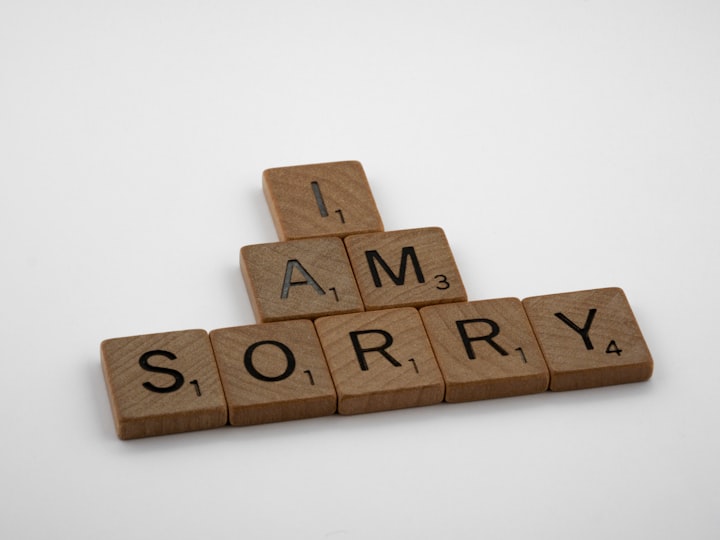The Best Way To Apologize
The Science-Based Method For Apologizing

A lot of absolutely terrible excuses have been offered over the years. Everything from traditional non-apologies to evasive justifications and poor corporate promises. Despite the fact that it's all too simple to apologize badly, studies have discovered that effective excuses typically include a few key components. Mindfully taking these features into account can help you make amends in a number of situations. We're going to concentrate on some person-to-person instances as public apologies have their own special challenges.
Now imagine that your new office offers complimentary ice cream sandwiches in the break room refrigerator, or at least that's what you believed. However, as you are assisting Terrence, one of your coworkers, in setting up another coworker's birthday party on Friday, he discovers that just half of the ice cream he purchased for the event is still there. Despite the fact that this was undoubtedly an embarrassing mishap, it is still appropriate to come forward and apologize. According to multiple researchers, the key component of an apology is realizing and taking responsibility for your mistakes.
It's acceptable, though, if this feels challenging and exposed.
A part of what makes excuses significant is meant to be their high cost. Because of this, it's crucial to keep in mind that a proper apology isn't about making you feel better, despite the temptation to justify your acts as accidental. In order to mend the relationship's harm, you must try to understand the other person's point of view. This means that, even while expressing your intentions in a non-defensive manner can be useful, the fact that your error was an accident shouldn't excuse you from making genuine apologies. What if, though, your error wasn't a mistake?
Consider the following scenario: You had committed to going to one of your friend Marie's championship football game, but a different friend has just called to offer you an extra ticket for your favorite musician's farewell tour. You understand that this is a once-in-a-lifetime opportunity, so you must take it. Furthermore, you believe Marie wouldn't mind if you skipped the game. There are always a lot of people behind her. Marie, however, claims that she was deeply saddened when she didn't recognize you in the crowd the next day. You truly want to apologize for upsetting her because you feel bad about it. However, despite your guilt for hurting Marie, you are not exactly certain if you made the right decision.
How then can you move past that awful lack of an apology? I'm sorry this is how you feel. In circumstances like this, it can be simple to concentrate on justifying your conduct when you need to be attempting to understand the viewpoint of the other person. To better understand your offense, you can think about asking Marie how you made her feel. If you broke your promise, Marie might say that you disappointed her since she was counting on your support. You may be able to admit your wrongdoing and openly embrace the damage your actions caused with the aid of such clarity. Then you can tailor your apology to specifically address her concerns, perhaps by acknowledging that breaking your promise was wrong and that you're sorry you couldn't be there for her.
Marie may have more faith in your ability to do things better going forward if you openly admit to wrongdoing because it shows that you are aware of exactly how you erred. But it's usually helpful to specify precisely how you'll alter and what you'll do to make up for the harm your offense caused. This is known as the offer of repair by researchers, and it's frequently seen as one of the most important components of an apology. These actions can be as simple as volunteering to take the place of the ice cream you just consumed. With less obvious offenses, this may need to be more symbolic, such as showing your love and respect for the person you wronged.
Verbal commitments to avoid making the same error again are a typical form of repair, but these promises only hold true if you follow through on them. One or more of the components of a strong apology include:
- Recognizing the victim's point of view and accepting responsibility.
- Making specific offers of repair.
Apologies aren't about asking for forgiveness and moving ahead, though, so keep that in mind. The purpose of them is to apologize and take responsibility. The first step toward reconciliation even after the best excuses is to apologize.
About the Creator
Demie Beach
Hi there,
I teach. I am a voracious reader and writer with over 8+ years of experience. I majored in Psychology and Management in college and I love to travel to new exciting places that will inspire me to write even better content.
Cheers!






Comments
There are no comments for this story
Be the first to respond and start the conversation.